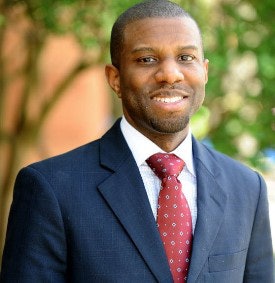 Ivory Toldson
Ivory ToldsonThis week, President Obama released his budget proposal for Fiscal Year (FY) 2017. The proposal for the Department of Education has a few new items that are relevant to Historically Black College and Universities (HBCUs).
Direct support to HBCUs
For FY 2016, the omnibus spending bill provided a $22 million increase for the Title III, Strengthening HBCUs, program administered by the U.S. Department of Education, providing the largest funding boost for the program in six years. President Obama’s FY 2017 budget seeks to maintain and strengthen these opportunities for HBCUs to build their capacity. The FY 2017 budget proposes $85 million in mandatory funding to HBCUs, an increase of $5 million from FY 2016, plus an additional $244.7 million in discretionary funds for Title III.
In addition, the FY 2017 budget proposes $30 million for a new program, HBCU/MSI Innovation for Completion Fund. This competitive grant opportunity is designed to support innovative and evidence-based, student-centered strategies to increase the number of low-income students completing degree programs.
America’s College Promise (ACP)
On January 9, 2015 President Obama released a plan to make two years of community college free for responsible students. Many advocates for HBCUs believed that HBCUs should be included because of their record of educating low-income and underrepresented students. Today, in his budget proposal to Congress, President Obama is requesting $60.8 billion in mandatory funding over the next decade for ACP ($1.3 billion over the next year) to not only create a new partnership with States to make two years of community college free but also to provide grants to four-year HBCUs and MSIs to give free or significantly reduced tuition to new students for their first two years.
Pell Grants
President Obama wants to make sure that Pell Grants are fully funded, including inflationary adjustments, and used strategically by students to reduce time and cost for receiving a terminal degree. Therefore, the FY 2017 budget includes mandatory protections of Pell Grants as well as an “On-Track Pell Bonus” for students taking at least 15 credit hours per semester. The new budget also proposes to restore yearlong Pell Grants for all recipients and Pell Grants for incarcerated individuals at qualifying institutions through the “Second Chance Pell Program.”
President Obama’s budget will enter a lengthy period of negotiation with Congress. The final budget from Congress will likely look different from President Obama’s proposal; however, many people will be advocating within the federal government for the best outcomes for HBCUs. Also, members of Congress, including congressional Black Caucus members and the HBCU caucus, have traditionally played a major role in finding ways to retain budget items that benefit HBCUs. The White House Initiative on Historically Black Colleges and Universities is very pleased with the proposal and plans to work with colleagues within the federal government as well as external stakeholders to advances the initiatives outlined in President Obama’s proposal.
Dr. Ivory A. Toldson is executive director of the White House Initiative on Historically Black Colleges Universities.















